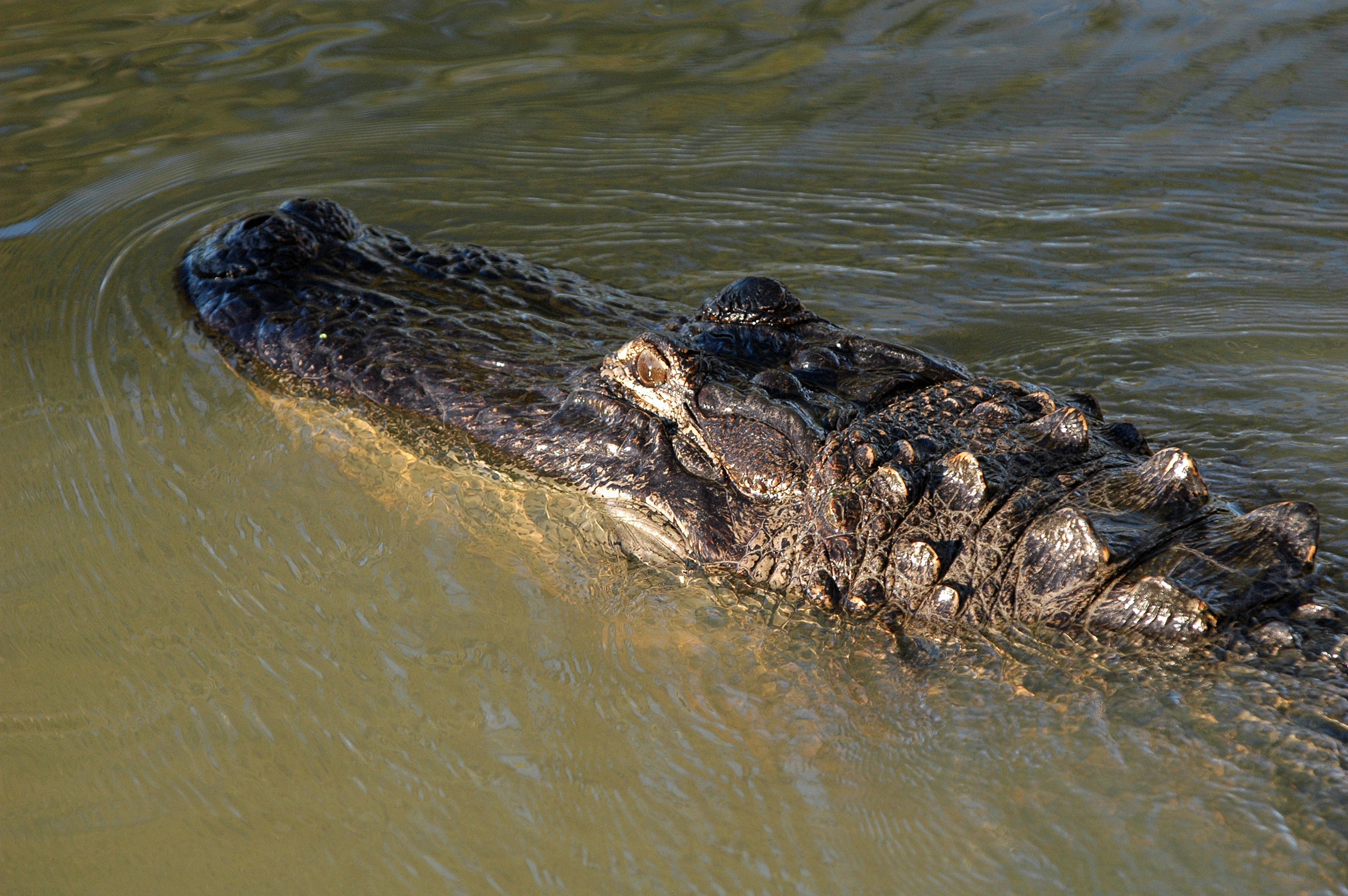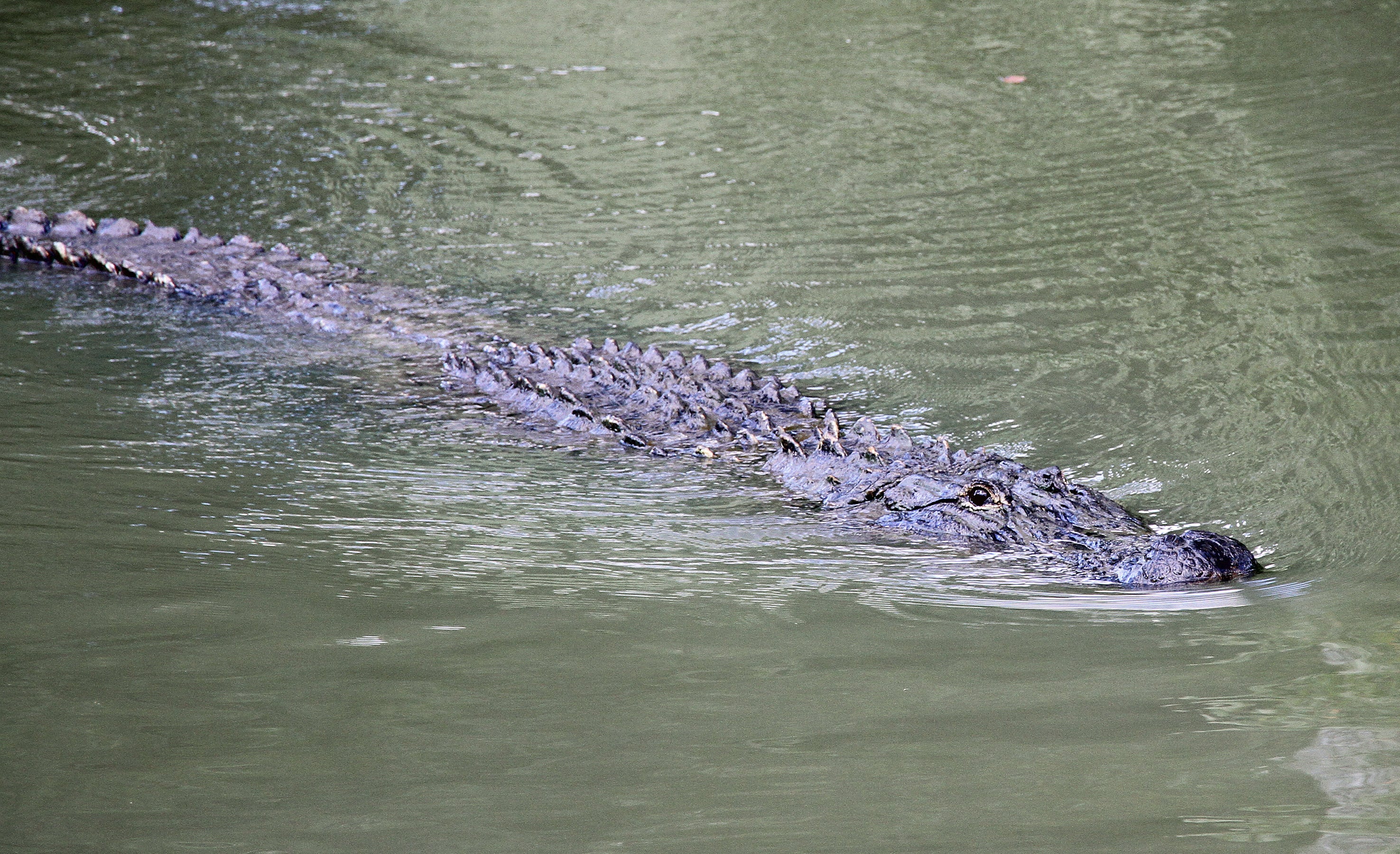By DAVID RAINER, Alabama Department of Conservation and Natural Resources
Alabama will celebrate its 15th alligator hunting season in 2020 as a remarkable recovery story continues for the American alligator.
Early in the 20th century, alligators in the U.S. had diminished to alarming numbers. Unregulated alligator harvest during this time prompted Alabama to protect the animals in 1938. In 1967 the U.S. Fish and Wildlife Service listed the American alligator as an endangered species.
“Alabama was one of the first states in the Southeast to protect alligators,” said Chris Nix, Alligator Program Coordinator with the Alabama Wildlife and Freshwater Fisheries (WFF) Division.
Conservation efforts by the affected states allowed the alligator population to rebound so that by 1987 it was removed from the Endangered Species List but continued to be a federally protected species.
Alabama's alligator population has grown to the point that it can sustain a limited harvest, allowing state residents a new and exciting opportunity. WFF officials decided to start with limited access and increase the opportunities when possible.
“I had joined Wildlife and Freshwater Fisheries two months before that first season in 2006,” Nix said. “We had 50 tags that year, and the hunting area was strictly the Mobile-Tensaw Delta. The south border was the Causeway; the north border was the CSX Railroad; the west border was Highway 43; and the east was Highway 225.
“It was a very small hunting area that first season. The reason is that managing alligators is a lot different than managing white-tailed deer or wild turkeys. If you overharvest deer one season, they can rebound from that pretty quickly. Alligators are not like that. It takes a lot longer for alligators to return to previous populations.”
While maintaining the integrity of the alligator population was the cornerstone of the conservation efforts, WFF surveys showed the hunting opportunities could be expanded to other parts of the state.
Registration for the 2020 alligator season opens June 2 and runs through 8 a.m. July 8. A total of 260 tags will be issued in five hunting zones.
Registration is $22 per zone, and individuals may register one time per zone. Selected hunters and others accompanying or assisting in any vessel are required to have a valid hunting license in their possession while hunting.
Only Alabama residents and Alabama lifetime license holders aged 16 years or older may apply for tags. Alabama lifetime license holders may apply for an alligator possession tag even if they have moved out of the state.
Visit https://www.outdooralabama.com/alligators/alligator-hunt-registration to register for the 2020 alligator hunts.
The original 2006 hunting area, now known as the Southwest Zone (100 tags available), has expanded its boundaries to include all of Mobile and Baldwin counties north of I-10 and private and public waters in Washington, Clarke and Monroe counties that lie east of U.S. Highway 43 and south of U.S. Highway 84. The 2020 season dates are sunset on August 13 until sunrise on August 16 and sunset on August 20 to sunrise on August 23.
The Coastal Zone (50 tags) was added last year and includes the private and public waters in Baldwin and Mobile counties that lie south of I-10. The 2020 season dates are the same as the Southwest Zone.
The Southeast Zone (40 tags) covers the private and public waters in Barbour, Coffee, Covington, Dale, Geneva, Henry, Houston, and Russell counties, excluding Alabama state public waters in Walter F. George Reservoir (Lake Eufaula) and its navigable tributaries. The 2020 season dates are sunset on August 8 until sunrise on September 7.
The West Central Zone (50 tags) includes private and public waters in Monroe (north of U.S. Highway 84), Wilcox, and Dallas counties. The 2020 season dates are sunset on August 13 to sunrise on August 16 and sunset on August 20 to sunrise on August 23.
The Lake Eufaula Zone (20 tags) includes Alabama state public waters in Walter F. George Reservoir (Lake Eufaula) and its navigable tributaries, south of Highway 208, Omaha Bridge (excluding Eufaula National Wildlife Refuge). The 2020 season dates are sunset on August 14 until sunrise on October 5. The Lake Eufaula Zone is the only zone with a size restriction. Alligators must be at least 8 feet in total length in the Lake Eufaula Zone, which is the only zone that allows daytime hunting.








